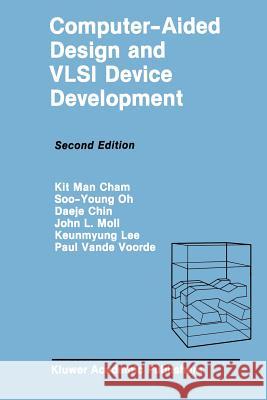Computer-Aided Design and VLSI Device Development » książka
Computer-Aided Design and VLSI Device Development
ISBN-13: 9781461289562 / Angielski / Miękka / 2011 / 380 str.
examples are presented. These chapters are intended to introduce the reader to the programs. The program structure and models used will be described only briefly. Since these programs are in the public domain (with the exception of the parasitic simulation programs), the reader is referred to the manuals for more details. In this second edition, the process program SUPREM III has been added to Chapter 2. The device simulation program PISCES has replaced the program SIFCOD in Chapter 3. A three-dimensional parasitics simulator FCAP3 has been added to Chapter 4. It is clear that these programs or other programs with similar capabilities will be indispensible for VLSI/ULSI device developments. Part B of the book presents case studies, where the application of simu lation tools to solve VLSI device design problems is described in detail. The physics of the problems are illustrated with the aid of numerical simulations. Solutions to these problems are presented. Issues in state-of-the-art device development such as drain-induced barrier lowering, trench isolation, hot elec tron effects, device scaling and interconnect parasitics are discussed. In this second edition, two new chapters are added. Chapter 6 presents the methodol ogy and significance of benchmarking simulation programs, in this case the SUPREM III program. Chapter 13 describes a systematic approach to investi gate the sensitivity of device characteristics to process variations, as well as the trade-otIs between different device designs."











